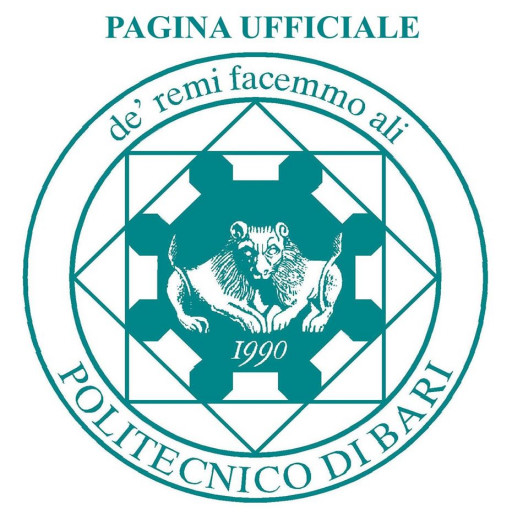Photos of university / #charlessturtuni
The Graduate Diploma in GIS and Remote Sensing at Charles Sturt University offers students a comprehensive foundation in geographic information systems, remote sensing technologies, and spatial data management. Designed for professionals seeking to enhance their skills or pivot into the geospatial industry, this program combines theoretical knowledge with practical applications to ensure graduates are well-equipped for diverse career opportunities. Throughout the coursework, students explore core concepts such as spatial data acquisition, analysis, and visualization, gaining proficiency in industry-standard software tools. The curriculum emphasizes real-world problem-solving, enabling students to develop effective solutions for environmental management, urban planning, disaster response, agriculture, and infrastructure development. By engaging with case studies and project-based assessments, learners will enhance their analytical skills and technical expertise, preparing them for roles as GIS analysts, remote sensing specialists, spatial data managers, or consultancy professionals. The program also promotes an understanding of the legal and ethical considerations related to geospatial data use, ensuring graduates are prepared to work responsibly within the industry. Delivered through flexible study modes, including online coursework, the Graduate Diploma caters to working professionals and those wishing to upgrade their qualifications without interrupting their careers. The program's focus on current industry standards and emerging technologies ensures graduates are aligned with workforce needs and technological advancements. Upon completion, students will possess a thorough understanding of GIS and remote sensing principles, along with the ability to manage complex spatial data projects, analyze geographic information, and communicate findings effectively. This qualification serves as a stepping stone for further academic pursuits or advanced professional roles in the rapidly evolving geospatial sector.
The Bachelor of Science (Geography and Environmental Science) with a specialization in Geographic Information Systems (GIS) and Remote Sensing at Charles Sturt University offers students a comprehensive education in spatial data analysis, mapping technologies, and environmental monitoring. This program is designed to equip students with the theoretical knowledge and practical skills needed to analyze and interpret geographic information, employ advanced remote sensing techniques, and apply GIS tools to real-world challenges in environmental management, urban planning, agriculture, disaster management, and more. Throughout the course, students will engage with a broad range of topics including spatial data collection, cartography, geospatial data management, environmental change detection, and the use of industry-standard software such as ArcGIS, QGIS, and ENVI. The curriculum emphasizes experiential learning through hands-on projects, fieldwork, and internships that provide students with valuable practical experience. Graduates will be prepared for diverse career opportunities in government agencies, environmental consultancies, industry sectors, and research institutions. The program is structured to ensure students develop not only technical competence but also critical thinking, problem-solving, and communication skills necessary to make informed decisions based on geographic information. In addition, the program fosters an understanding of the ethical considerations and societal impacts related to the collection and use of geospatial data. With a focus on current industry standards and emerging technologies, the Bachelor of Science (GIS and Remote Sensing) prepares students to contribute effectively to sustainable development and environmental conservation efforts worldwide.
Program requirements for the Graduate Diploma in Geographic Information Systems and Remote Sensing at Charles Sturt University include completing a total of four core courses and one elective course. The core courses typically cover fundamental principles of GIS technology, spatial data management, remote sensing principles, and applications in environmental and urban contexts. Students are expected to demonstrate proficiency in geographic information systems software, spatial data analysis, and remote sensing data interpretation, which are essential skills for careers in spatial sciences, environmental management, urban planning, and related fields.
The program may also require students to undertake a practical component or project demonstrating their ability to apply theoretical knowledge to real-world spatial problems. Prerequisites for admission generally include a bachelor's degree in a relevant discipline such as environmental science, geography, information technology, or engineering. In some cases, relevant work experience may also be considered for admission.
Throughout the course, students are encouraged to develop research and analytical skills alongside their technical competencies. As this program emphasizes practical application, students are often provided with access to GIS software and remote sensing tools, enabling hands-on experience. The curriculum is designed to prepare graduates for employment in governmental agencies, consulting firms, research institutions, and private sector organizations involved in spatial data analysis, environmental monitoring, disaster response, and infrastructure development.
To complete the program, students must meet all coursework and assessment requirements set by faculty, including examinations, project submissions, and participation in practical exercises. The program duration is typically one year full-time or equivalent part-time study. Upon successful completion, graduates are awarded a Graduate Diploma, which can serve as a stepping stone for further postgraduate studies or professional development in geographic information systems and remote sensing.
The Charles Sturt University offers flexible and diverse financing options for students enrolled in the GIS and Remote Sensing program. Students can benefit from a range of financial support mechanisms designed to make education more accessible and affordable. Commonwealth Supported Places (CSP) are available for eligible domestic students, allowing them to pay a subsidized tuition fee aligned with government funding policies. For students who do not hold CSP status or are international students, full fee-paying options are available, with detailed fee structures published annually on the university’s official website.
Charles Sturt University recognizes the importance of financial planning for students and provides various payment plans, including voluntary student union fees, student services, and amenities fees, which are payable each semester. Additionally, students can access financial assistance through government loans such as HECS-HELP for domestic students, which enables students to defer tuition fees and pay them back when their income exceeds a certain threshold. For international students, tuition fees are payable upfront or via approved payment plans, with the possibility of scholarships and bursaries to reduce financial burdens.
Scholarship opportunities are available for outstanding students, including those demonstrating academic excellence, financial need, or special talents relevant to the GIS and Remote Sensing field. These scholarships can significantly offset the costs of study and are awarded based on application merit. The university also provides information and guidance on external funding options, such as private loans and sponsorships, which students can explore to support their educational investment.
Apart from tuition fees, students should consider additional costs such as textbooks, software licenses, and lab equipment, which are partly covered or supported by university resources. The university’s student financial services offer personalized advice to help students plan their budgets effectively. Moreover, many students choose to combine part-time work with their studies, facilitated by the flexible scheduling options provided by Charles Sturt University, to sustain their financial position during their academic journey.
In summary, the Charles Sturt University provides a comprehensive array of financing options including government assistance, scholarships, instalment plans, and external funding opportunities, all aimed at reducing financial barriers and encouraging students to pursue their degrees in GIS and Remote Sensing without undue hardship.
The Bachelor of GIS and Remote Sensing at Charles Sturt University offers students a comprehensive education in geographic information systems, remote sensing technologies, and spatial data analysis. This program equips graduates with the skills necessary to analyze and interpret spatial data, which is essential in various fields such as environmental management, urban planning, disaster management, agriculture, and resource exploration. The curriculum combines theoretical principles with practical applications, enabling students to develop proficiency in using industry-standard software and tools to process and visualize geospatial data effectively.
Students will explore a wide range of topics including GIS principles, remote sensing techniques, spatial data management, cartography, geostatistics, and cartographic visualization. The program emphasizes real-world problem-solving through practical projects, fieldwork, and collaborative assignments, preparing graduates for employment in government agencies, consulting firms, and research organizations. The coursework is designed to foster critical thinking and analytical skills, allowing students to assess spatial data for informed decision-making.
Throughout their studies, students have opportunities to undertake internships and industry placements that provide valuable hands-on experience and professional networking opportunities. The faculty experts in GIS and remote sensing research continually update the curriculum to reflect advancements in technology and industry practices. The program's goal is to produce graduates who are proficient in the latest GIS and remote sensing methodologies, capable of addressing complex spatial problems in a variety of professional contexts.
Graduates of this program can pursue careers in fields such as environmental consultancy, urban planning, disaster response, transportation, and natural resource management. The degree also provides a solid foundation for further postgraduate study and research in geospatial sciences. With the increasing reliance on spatial data in decision-making processes worldwide, a qualification in GIS and Remote Sensing from Charles Sturt University offers excellent career prospects and the opportunity to contribute meaningfully to societal and environmental challenges.










